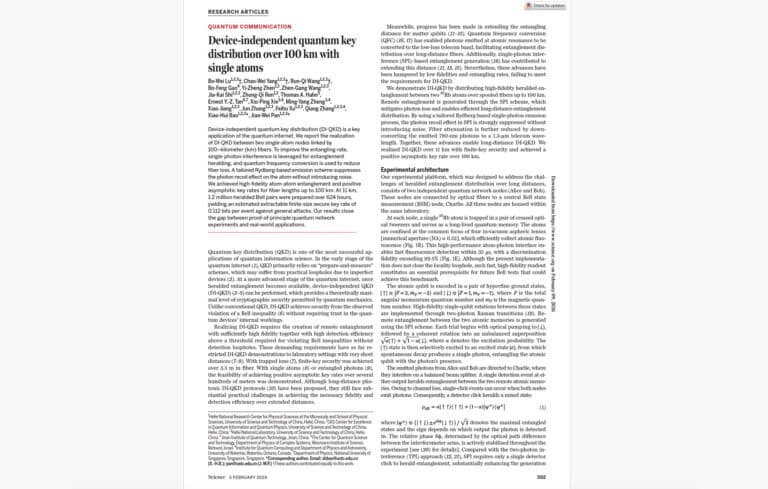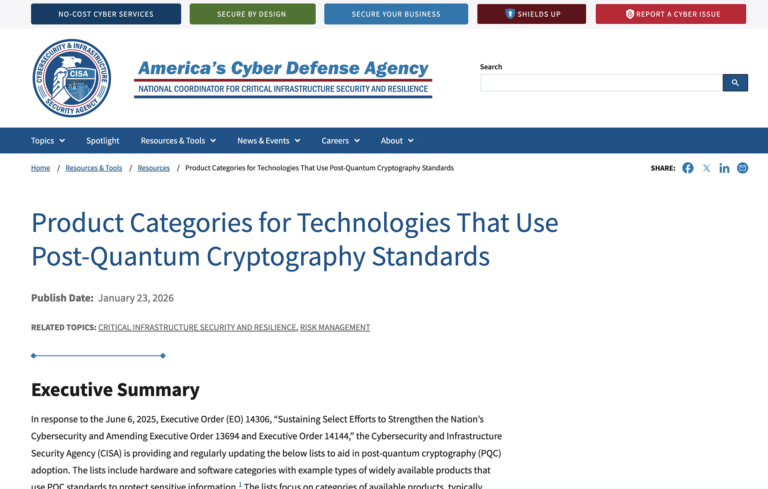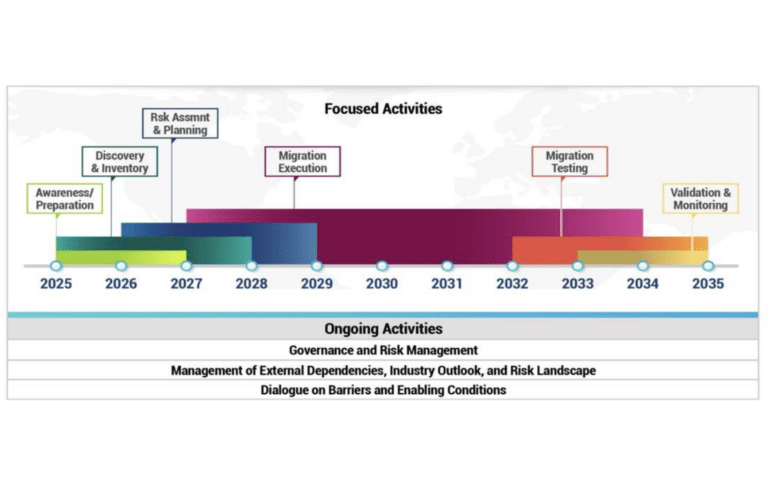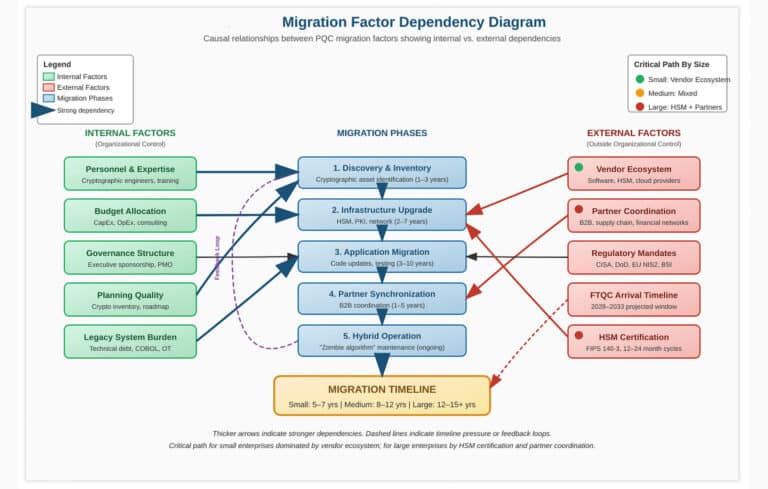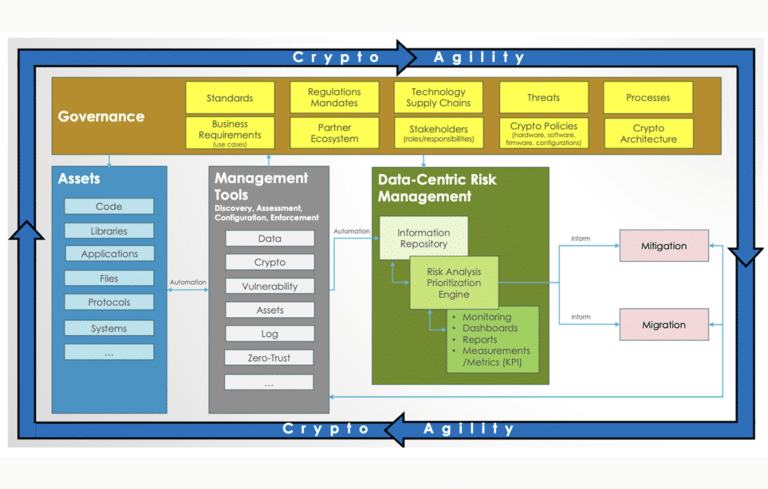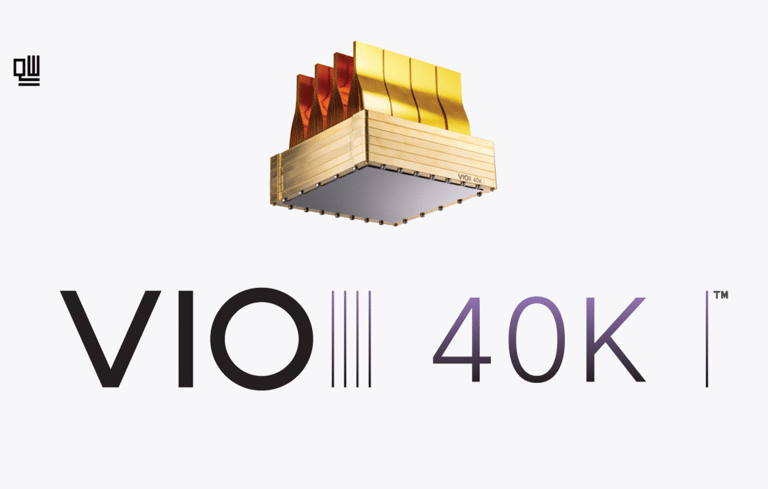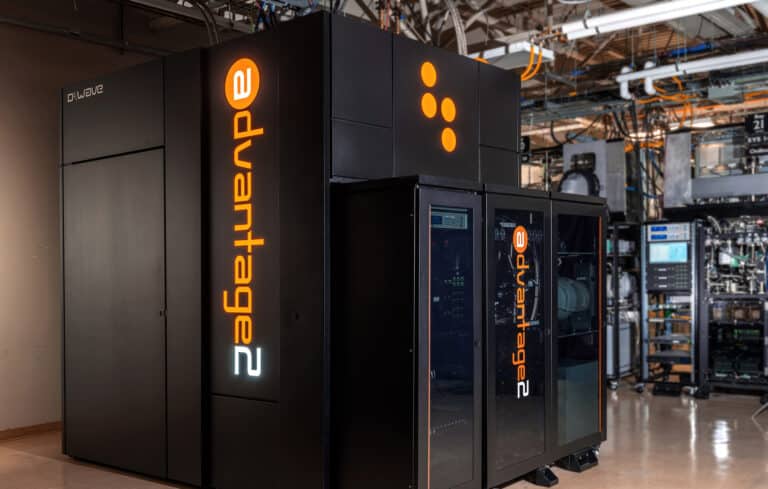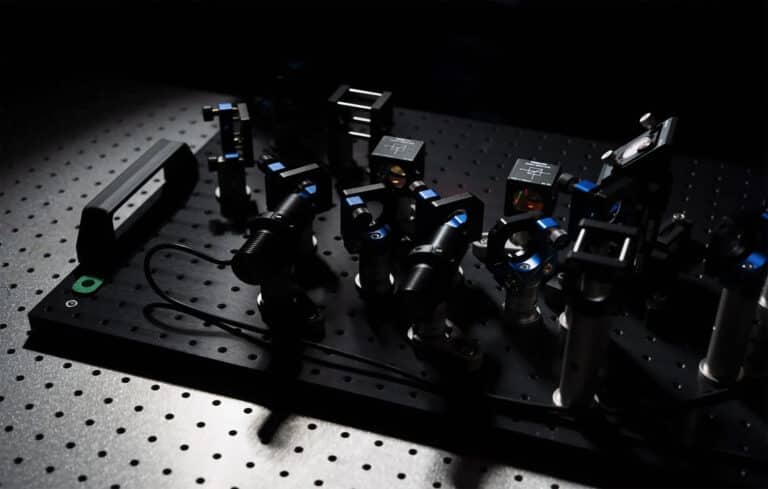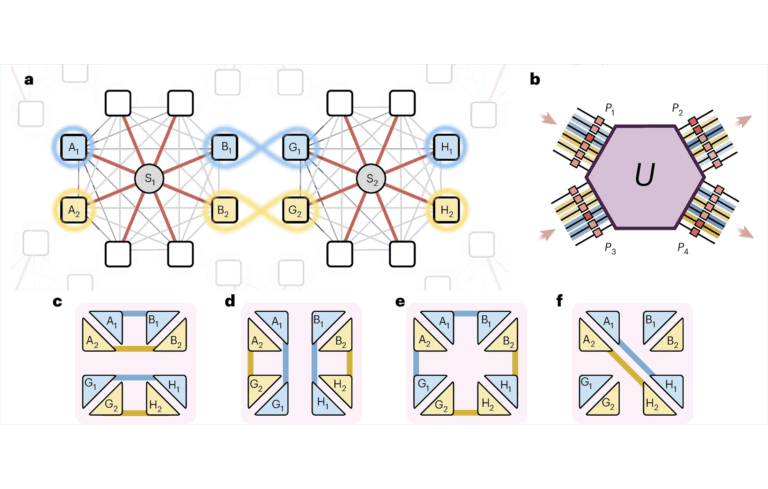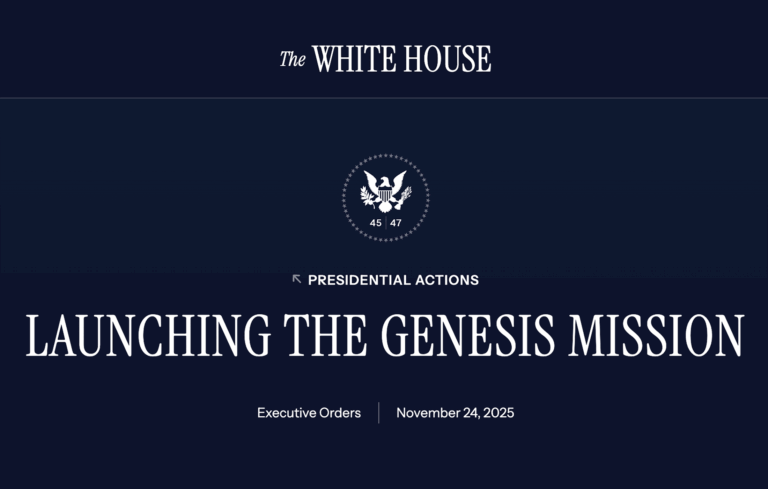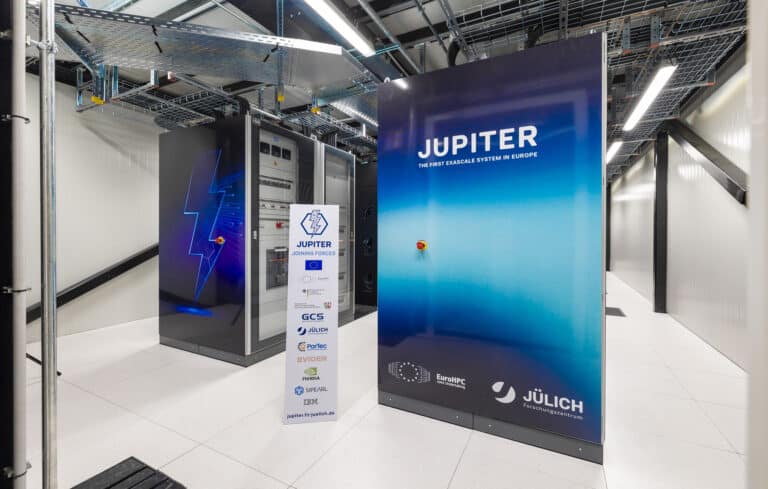Latest Quantum Industry News
No, the “Pinnacle Architecture” Is Not Bringing Q-Day Closer 2-5 Years (but It Is Credible Research)
Since the preprint paper of The Pinnacle Architecture preprint hit and its Quantum Insider coverage ran, my phone has been ringing off the hook. The question behind most of those calls is simple: does this mean RSA is suddenly in imminent trouble? Is it true that this paper brought the Q-Day closer 2-5 years? (Who said that?!?)... The short answer is NO - not ...
The EU Just Proposed Including Post-Quantum Cryptography (PQC) in NIS2
On 20 January 2026, the European Commission published COM(2026) 13 final - a proposed directive amending NIS2 as part of a broader cybersecurity simplification package tied to the upcoming Cybersecurity Act 2. The proposal covers a range of updates: streamlining scope definitions, simplifying cross-border supervision, introducing ransomware reporting requirements, and enabling cyber posture certification as a compliance tool. But buried ...
China Just Pushed Device-Independent QKD (DI-QKD) to 100 Kilometres
A team at the University of Science and Technology of China (USTC) published a paper in Science that quietly redrew the map of what device-independent quantum key distribution (DI-QKD) can do. Led by Bo-Wei Lu, Chao-Wei Yang, Run-Qi Wang, Xiao-Hui Bao, and the ever-present Jian-Wei Pan - the physicist sometimes called China's quantum communications supremo - the experiment demonstrated DI-QKD ...
India’s Task Force Releases Quantum‑Safe Roadmap with 2027–2029 Migration Timeline for CII
India’s Department of Science and Technology (DST) published the “Implementation of Quantum Safe Ecosystem in India – Report of the Task Force.” This report, produced by a national Task Force under DST, lays out a strategic roadmap for transitioning India’s digital infrastructure to quantum-resistant security. The Task Force was chaired by Dr. Rajkumar Upadhyay (CEO of C-DOT) and convened experts ...
CISA Draws the Line: The Product Category Advisory & The End of Legacy Procurement
The Cybersecurity and Infrastructure Security Agency (CISA) released a definitive advisory titled "Product Categories for Technologies Use Post-Quantum Cryptography Standards." This document, mandated by Executive Order 14306 (June 2025), fundamentally alters the procurement landscape for the United States federal government and, by extension, the global technology supply chain. The advisory bifurcates the Information Technology marketplace into two distinct classifications: "Widely Available" PQC ...
Citi’s Quantum Threat Report: The Trillion-Dollar Security Race in Focus
The Citi Institute - a research arm of global banking giant Citigroup - published a stark warning titled “Quantum Threat: The Trillion-Dollar Security Race Is On.” In unequivocal terms, Citi’s analysts predict that within the next decade quantum computers are likely to become powerful enough to break widely used public-key encryption. They caution that the economic and geopolitical fallout of ...
G7’s Post‑Quantum Roadmap: Preparing the Financial Sector for a Quantum-Resilient Future
The G7 Cyber Expert Group (CEG) - an international team of cybersecurity authorities co-chaired by the U.S. Treasury and the Bank of England - issued a landmark roadmap for the financial sector’s transition to post-quantum cryptography. This high-level plan, formally titled “Advancing a Coordinated Roadmap for the Transition to Post‑Quantum Cryptography in the Financial Sector,” is aimed at banks, financial ...
Enterprise PQC Migration: New Study Predicts 5–15+ Year Timelines
A new peer-reviewed study titled "Enterprise Migration to Post-Quantum Cryptography: Timeline Analysis and Strategic Frameworks" by independent researcher Robert Campbell has been published in the open-access journal Computers (MDPI). This paper provides one of the most comprehensive analyses to date of how long it will take enterprises to fully migrate their cryptographic systems to post-quantum cryptography (PQC). The findings are ...
Crypto Agility Goes from Buzzword to Blueprint – NIST Releases “Considerations for Achieving Crypto Agility”
NIST published the final version of the Cybersecurity White Paper (CSWP) 39 – “Considerations for Achieving Crypto Agility: Strategies and Practices.” CSWP 39 elevates cryptographic agility from an oft-cited buzzword to a design imperative for both government and industry. The message is clear: organizations must be able to adapt their cryptography on the fly without breaking systems, treating agility as ...
BIS Project Leap Phase 2 – PQC in Real-World Payment Systems
The Bank for International Settlements (BIS) and the Eurosystem published the results of Project Leap Phase 2, a massive technical trial testing PQC on the TARGET2 payment system (the Real-Time Gross Settlement system for the Euro). The project involved the Banque de France, Deutsche Bundesbank, the Bank of Italy, and Swift. The headline finding was a success: the consortium proved they ...
QuantWare’s “10,000‑qubit chip” headline: a real scaling bet – and why it still doesn’t mean Q‑Day
Dutch startup QuantWare has announced VIO-40K™, a new 3D packaging architecture designed to build superconducting quantum processors with up to 10,000 qubits on a single device. This represents roughly a 100× increase over the scale of today’s largest superconducting chips. The VIO-40K approach uses a stack of chiplets - multiple layers of quantum chips and interposer modules - to deliver ...
D-Wave Targets U.S. Government With New Quantum Unit
D-Wave Quantum Inc. has launched a dedicated business unit to accelerate quantum adoption across U.S. government agencies. Led by newly appointed VP Jack Sears Jr., a defense contracting veteran, the unit will focus on logistics, transportation, and national security applications in response to growing federal interest in quantum solutions. D-Wave’s CEO Alan Baratz says the “call to use quantum technologies ...
Danish Photonics Startup Sparrow Quantum Raises $32M
Sparrow Quantum, a spin-out from the Niels Bohr Institute, has closed a €27.5 million (~$32 million) Series A round - the largest quantum-tech investment in the Nordic region to date. The funding, led by North Ventures and the European Investment Bank’s venture arm, will bankroll scaling up Sparrow’s production of deterministic single-photon chips and support global expansion. Sparrow’s core innovation, the Sparrow ...
Linking Two Quantum Networks
A new paper in Nature Photonics by Natalia Herrera Valencia et al. (2025) reports a prototype quantum network that connects two previously separate networks into a single eight-user system. In practical terms, the team from Heriot-Watt University demonstrated a reconfigurable quantum photonic network that can route entanglement to different users on demand and even “teleport” entanglement across network boundaries. This ...
White House “Genesis Mission” Links Supercomputers, AI & Quantum
The White House has launched the Genesis Mission, an ambitious Department of Energy initiative to integrate America’s top supercomputers, AI systems, quantum computers, and scientific instruments into a unified "discovery platform". Announced via Executive Order by President Trump, the mission’s goal is to double U.S. scientific research productivity within a decade by creating an unprecedented computational network. Under Secretary for ...
Quantum Funding Surge: Firgun Ventures’ $70 M Quantum Tech VC Round
Investor confidence in quantum technology is reaching new heights, as evidenced by London-based Firgun Ventures announcing a $70 million first close of its new quantum-focused venture fund. Firgun’s fund, which is backed by Qatar’s sovereign wealth fund (Qatar Investment Authority) as an anchor LP, is targeting a total of $250 million to invest in early growth-stage quantum startups globally. The initial $70M ...
Jülich Simulates a 50-Qubit Quantum Computer on an Exascale Supercomputer
Researchers at Forschungszentrum Jülich have fully simulated a universal 50-qubit quantum computer using Europe’s first exascale supercomputer, JUPITER. This achievement, requiring on the order of 2 petabytes of memory, breaks the previous simulation record of 48 qubits set in 2019 and provides a powerful new testbed for quantum algorithms. It marks a milestone intertwining high-performance computing (HPC) with quantum research, ...
IBM and Cisco Want to Network Fault‑Tolerant quantum computers
IBM and Cisco’s joint announcement this week is easy to misread as another “quantum + internet” headline. It isn’t. The two companies are laying out a step‑by‑step program to turn stand‑alone fault‑tolerant machines into a fabric: first a proof‑of‑concept linking multiple fault‑tolerant computers within five years, then a broader, distributed network in the early 2030s, and - if the physics ...


